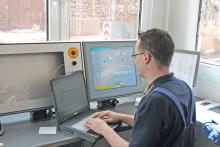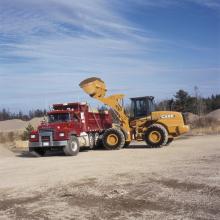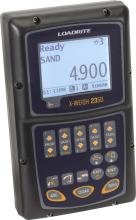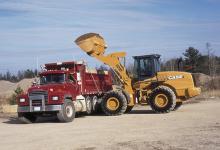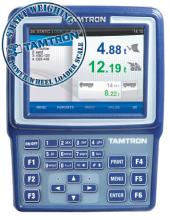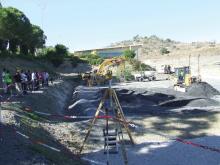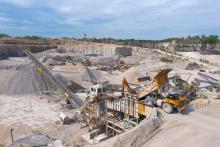
Tracking productivity of hauling fleets is a key task for many quarries but finding an affordable and functional solution is not always simple
Advances in technology mean that GPS-based equipment is becoming commonplace but there are still some locations that do not get a reliable signal throughout the working day. In some places this is due to the location of the quarry, but in others it is the geographical layout and depth of the pit that cause the problem.
Poor or intermittent signals mean that GPS-based machine tracking technology is unreliable but a Canada-based firm has a system which it believes could be the answer for such sites – and it is cost effective too. The QuarryTag system uses RFID technology and has been adapted from a product that has been widely used by the road paving market since 2007.
“QuarryTag was launched in March last year after one of our customers in North America asked for the Pave Tag system to be adapted for its quarry operation,” explained
The company’s paving solution – PaveTag – was launched in 2007 and adoption of the technology is increasing in North America and Europe. “It is an economical way to track movement of trucks between the asphalt plant and paver without the on going costs associated with GPS-based systems,” explained Kieres.
“The other issue for many road and quarry operators is that the trucks are often owned by haulers so they won’t invest in GPS receivers. The RFID tags used by both QuarryTag and PaveTag cost around US$40 and are very easy and cheap to install.”
Kieres explained that the PaveTag system works on the basis of a moving geofence but the QuarryTag solution is simpler as the site is not continually moving.
“QuarryTag does not use cellular or satellite networks but uses wifi to link the information from the trucks to the weigh station or office,” he said.
The quarry, which has now been using the system for over a year, was first customer and reported that any percentage of efficiency gain in the cycle times was significant to its business due to the hourly costs of running the hauling fleet. It also allows the operator to check the productivity of each driver or truck.
“The information can be analysed through a web-based portal called eRoutes that can provide customised reports and alerts for operators,” explained Kieres. “The infrastructure needed to operate the system involves installation of reader points – in quarries this is generally one on the loading machine and one at the crusher and then RFID tags on the trucks.
“Timing is important when it comes to performance monitoring and the system allows the movement of trucks through the site to be recorded and cycle times checked.”
Kieres said he was not aware of any other solutions using the same technology and his company is already looking at further innovation of the system. He added that the company is also looking to work with weigh in motion technology providers which could make it possible to connect load cells and add more information to the system.

